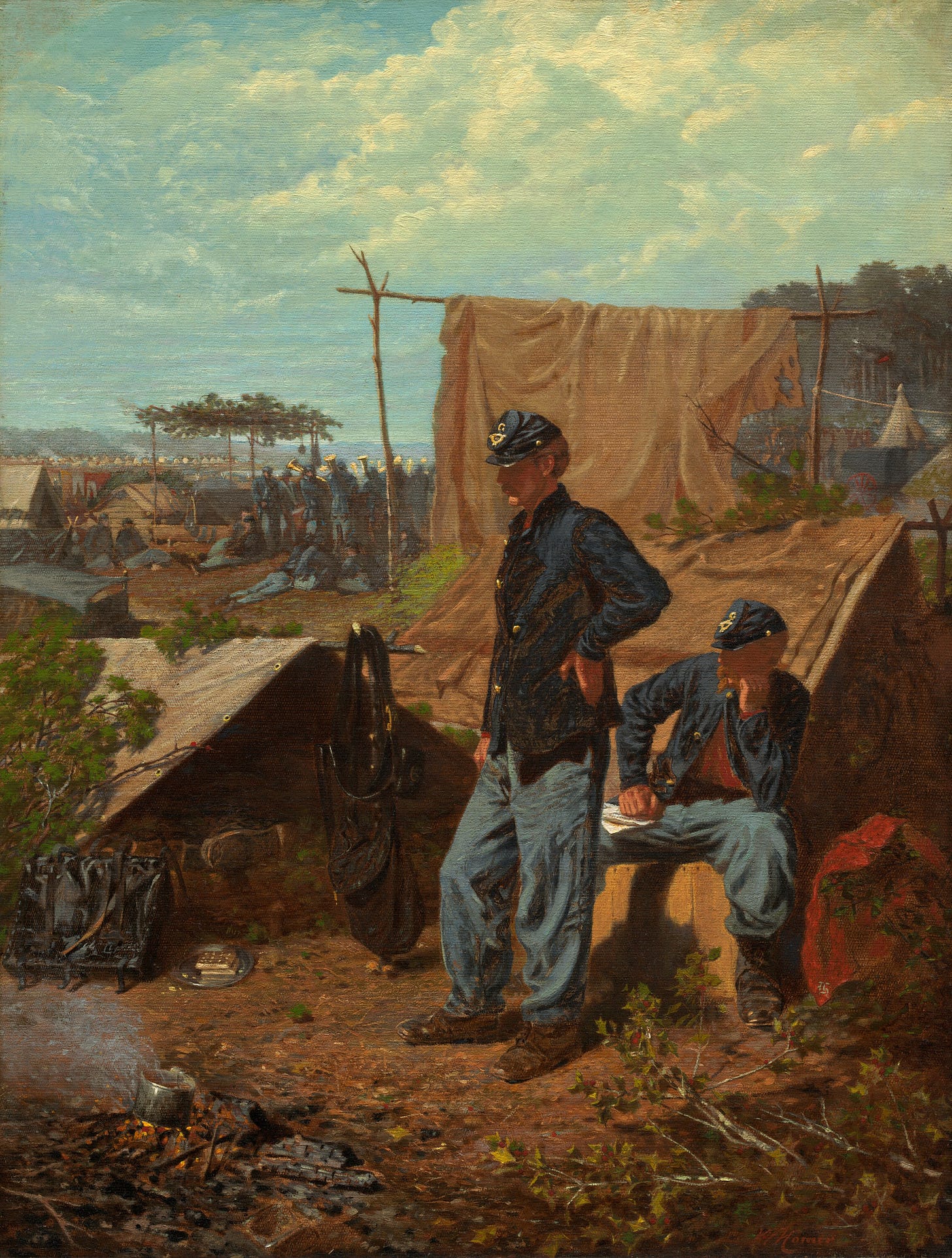Yankee, Rebel, Enslaved, Free
How to start a conversation about the Civil War with your children

Dear Friends,
The American Civil War (1861-1865) is an extremely painful American memory that has been used, abused, and held onto ever since the war’s conclusion and the beginning of Radical Reconstruction.
You know what I mean. We see it everywhere. It’s in racial divides. It’s in school controversies. It’s in nightmares and in daydreams and in the re-enacting of both on battlefields and plantation houses every year. It’s right there at the core of both wokeism and MAGA. It’s even in street names.
Especially in a place like my home region, the Shenandoah Valley, which I wrote about last year at Front Porch Republic.
And it’s an incredibly sensitive subject. But it is one that our children not only need to learn about as they grow, but also need to understand in a way that is historically responsible.
They need to be able to look at the moral questions of the war clearly and not pull any punches when taking stock of the beliefs and actions of either Confederates or Federals; but they also need to understand why people made the choices they did when they picked sides and went to war.
In history, we need to be both critical and generous when examining the past. If the historical figure you’re speaking or writing or thinking about wouldn’t at least recognize what you are saying about him or her—even if he or she wouldn’t agree with it—then you are likely making a mistake in how you are treating the people of the past.
As the other Dr. Lane (my husband, Christopher) says, doing history is one of the Works of Mercy. It is caring for the dead. So it is a solemn responsibility.
But how to begin this kind of conversation with your children? As I wrote at Hearth & Field several months ago, here imagination is your friend. You can take your kids to museums and battlefields if you are able, and of course you can read them stories and watch good historical films together.
Today, however, I would like to offer you a practical, downloadable resource that I have designed in order to start this discussion in a way that will connect your children to your own family circumstances and history.
The question this family Civil War activity addresses is not “Which side do you think were the ‘good guys?’”, but instead, How is your own family connected to the war, How did people chose a side, and Which side would you likely have chosen if you were really living at the time?
Click below to download our family Civil War interview and conversation resources!
Right here:
If no one in your family (think of all the various “sides” of the family) was living in the U.S. during the Civil War, consider asking a friend or neighbor about their family and completing the activity that way. And then you can all discuss the question at the end of the document together, or you can just discuss as a family.
Alternatively, you can fill out the interview based on your current situation — where you live now, your jobs, your beliefs, etc.
You’ll note that you’ll need to at least introduce the Civil War as an event to your children before doing this activity. Included in the document is a quick breakdown of North & South (not including the states, alas, as I didn’t have space!) that will help guide you in a few basics.
- What do you think?
- Will you try it?
- Do you care about the Civil War?
I hope this is fruitful for you! Please report back and tell us how it goes, if you decide to try it!
Warmly yours,







This is really cool. I wish I knew more about my family history to do this. But maybe there would be more that we could find than I think 🤔. I really appreciate the idea of the kids situating themselves in history, vs. taking sides. We’ve had lots of these conversations around Western expansion, especially because we were living right in the middle of some of those historical places. Telling facts carefully is so important to history, and almost always they are pretty complicated because they involve people.
I'm really glad you made this, I love this approach and I can't wait to try it with my kids! My seven year old loves history and is totally fascinated by the wars -- this gives me a good handhold for the kinds of questions to ask, the things to hold in tension, etc. And the idea of approaching your own family members is exactly right.
We're reading Johnny Tremain right now (I kind of forgot how tragic it was? But both of us are now in way too deep to get out 😐). Forbes does this incredible job highlighting the existing relationships between the people of England and the Americans in the colonies, which adds this component of complexity and heartbreak and hardships that gets missed sometimes in the historical overview. ALSO -- made a discovery at the library the other day -- Edwin Tunis? (The book I found is called Colonial Living) My first thought was, "Either Dixie knows about and loves this person or she definitely would."